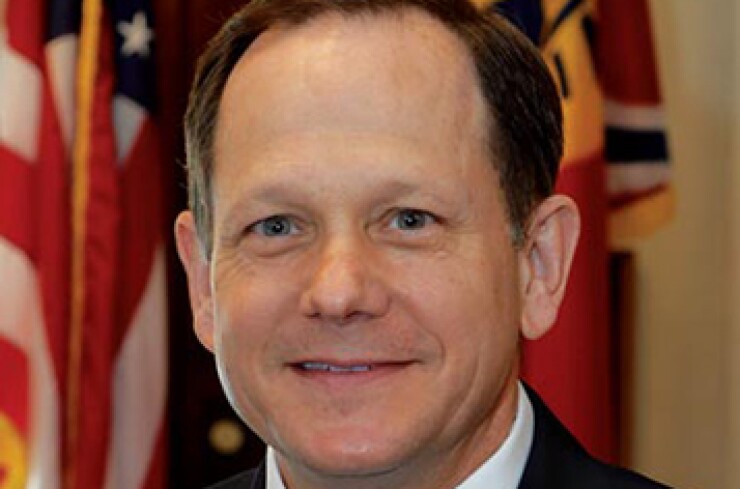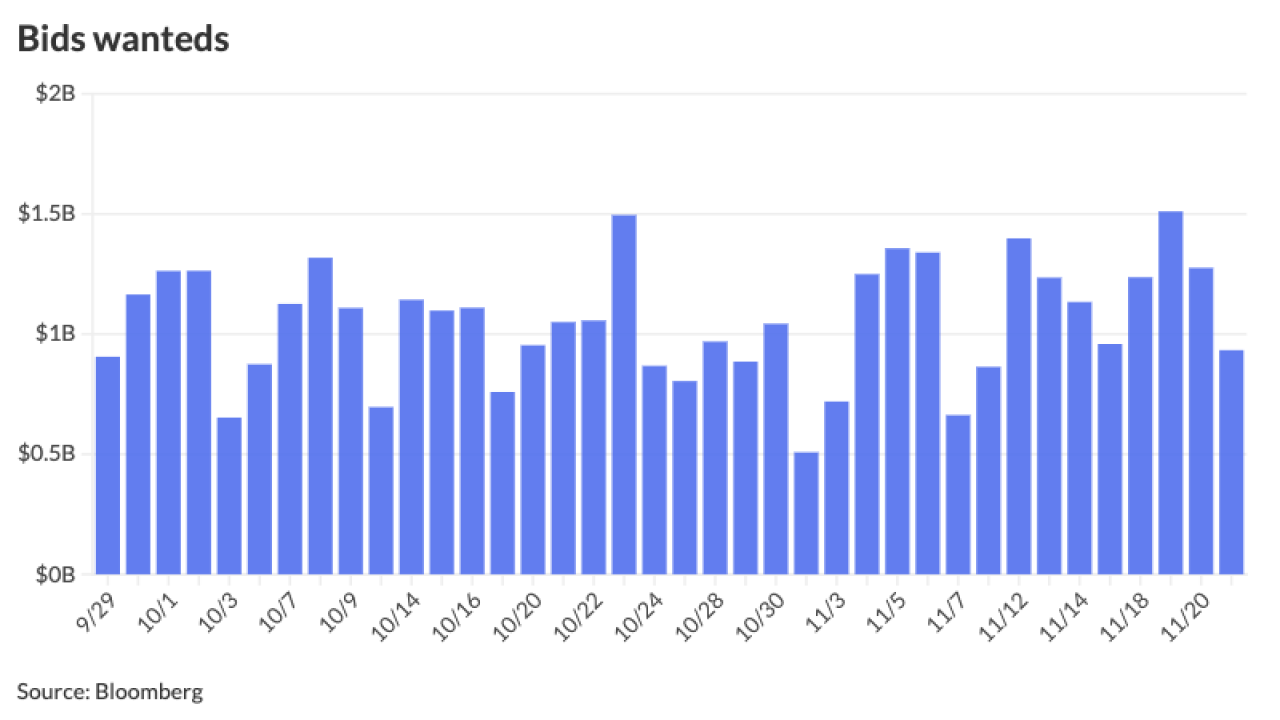
CHICAGO – Voters in the St. Louis region face a series of ballot measures next month that could profoundly impact their local government's fiscal fortunes.
The measures being decided April 5 range from a $900 million bond referendum sought by the St. Louis area sewer district to the renewal of the city's earnings tax.
The junk-rated city of Ferguson is also seeking tax proposals to help stabilize a balance sheet strained by rising costs in the aftermath of a controversial fatal police shooting.
The Metropolitan St. Louis Sewer District is requesting a $900 million bonding authorization to fund the agency's ongoing capital program through 2020. A public rate setting commission endorsed increased rates and the bonding and the district board signed off last year. The borrowing would help reduce the need for higher rate hikes.
The plan would set rates for 2017 to 2020 and provide funding for $1.5 billion in projects over those four years.
They are part of a larger, $4.7 billion long-term infrastructure program of capital projects, many required under a 2012 consent decree struck with the U.S. Environmental Protection Agency.
The plan relies on borrowing, service charges, grants, and state revolving fund support. If approved, the district doesn't intend to tap the new capacity until fiscal 2018 because borrowing authority remains from a $945 million authorization approved by voters in 2012.
The district intends to sell about $150 million of bonds in fiscal 2016 and then $174 million in fiscal 2017.
The proposed plan relies on issuance under the new authority of $216 million in 2018, $235 million in 2019, and $293 million in 2020.
The district has ratings of AA-plus from Fitch, Aa1 from Moody's Investors Service and AAA from Standard & Poor's. All three assign a stable outlook to the credit.
St. Louis voters will decide if they will renew the city's earnings tax, which is expected to generate about $160 million this year and makes up about one-third of the city's general revenue fund.
The tax comes up for a vote every five years under terms of a 2010 state ballot measure requiring periodic renewal of the earnings taxes in St. Louis and Kansas City. If St. Louis voters reject Proposition E, the tax would be phased out over 10 years. About 88% of voters endorsed renewal in 2011.
The earnings tax is a 1% assessment levied on wages earned by anyone living or working in St. Louis.
"The earnings tax is critical to operating basic services in St. Louis," according to a statement on the city comptroller's website.
The earnings tax also faces a threat from pending state legislation that would phase out the levy. Opponents argue the tax deters business and residential growth and that its elimination would force the city and state to come up with an alternative revenue source.
Supporters say it should be left intact until some consensus is reached on a potential alternative.
"I agree with the conclusion that the city's earnings tax…is a disincentive to some residents and businesses," Mayor Francis Slay told state lawmakers during a recent hearing, asking them to leave the tax alone. "Nevertheless, everyone who pays the earnings tax benefits from the services provided by the city."
The city is not part of a county government so it must fund court, election, and sheriff's services. City supporters highlight that the burden is spread out to include non-residents working in the city. Slay's campaign committee recently donated $100,000 to a committee supporting the tax, according to published reports.
City voters will also decide Proposition F, a $25 million bond authorization to fund public safety and infrastructure needs. The bond will utilize the current tax levy and not require a tax hike, according to documents on comptroller Darlene Green's website.
Moody's last year downgraded St. Louis one notch citing the city's weak socioeconomic profile, reliance on the earnings tax, high debt burden and relatively narrow financial position.
The action lowered the city's general obligation rating to A1 from Aa3, its lease-revenue debt for essential services to A2 from A1, and its non-essential rating lease rating to A3 from A2. The lease-backed debt is subject to annual appropriation risk. A stable outlook is assigned.
Standard & Poor's recently affirmed the city's A-plus GO rating and A rating on appropriation debt ahead of a refunding issue. The agency assigns a stable outlook.
"While the law provides for a tax phase-out over time, a failed renewal, which we view as unlikely, would present significant budget challenges," S&P wrote.
In Ferguson, voters will vote on two proposals, one to raise property taxes by 40 cents per $100 of assessed value to raise an estimated $1.5 million annually, and a quarter-cent cent economic development sales tax that would generate about $1.2 million annually.
The city needs the extra funds as it seeks to recover from the rising costs tied to the 2014 police shooting and ensuing protests, which threaten its solvency.
Moody's Investors Service, which recently placed Ferguson's $16.5 million of junk-rated debt on review, will be watching closely how the ballot proposals fare.
"Passage of the April ballot initiatives is integral to management's proposed solution to close the existing budget gap. Absent passage of these initiatives, city management has indicated a balanced budget will be achieved with reductions in force," Moody's said.
The city has $6.7 million of Ba2-rated 2011 general obligation bonds, $8.4 million of Ba3-rated 2013 certificates of participation, and $1.5 million of B1-rated 2012 COPs.
Moody's dropped the city to junk last September.
Moody's put the city on a fresh review after the U.S. Justice Department filed a federal lawsuit in February accusing Ferguson of policing and municipal court practices that violate constitutional and federal civil rights. The lawsuit followed the Ferguson city council's decision to water down a negotiated consent decree.
The city last week backed down and gave initial approval to the consent agreement. The council was expected to cast a final vote as soon as Tuesday evening.
The city has estimated it would cost between $2.1 million to $3.7 million to implement the consent decree reforms in the first year and then $1.8 million to $3 million in the third year and beyond. The city, which is currently operating in the red, has a $14.5 million budget.
Since the lawsuit's filing, Justice officials have told the city that some technical assistance and grant funds could be provided to ease the fiscal burden. The federal government also said it would drop the lawsuit.
DOJ launched a patterns and practice probe of the department following the August 2014 shooting to death of a young, unarmed African-American man, Michael Brown, by then-police officer Darren Wilson, who is white. The event triggered protests in Ferguson and around the country.
The city northwest of St. Louis, which once had a healthy balance sheet and carried an Aa3 rating, has struggled to recover from reduced fine collections and other litigation.





